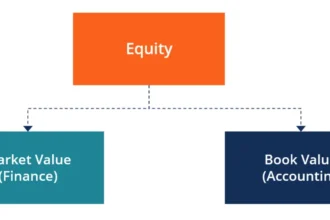Equity is a core concept in finance that represents ownership in a company. Grasping the basics of equity is essential for investors and business professionals to make informed decisions. This article answers key questions about equity, providing clear and concise explanations.
Contents
What is equity?
- Equity represents the ownership interest in a company which can be held by shareholders or owners.
- It signifies the residual interest in the assets of a company after deducting liabilities.
- In simple terms, equity is the value that owners or shareholders would receive if all assets were liquidated and all debts paid off.
How is equity calculated?
Equity is calculated using the formula:
Equity = Total Assets – Total Liabilities
- This formula is derived from the accounting equation, where assets are everything the company owns, and liabilities are everything it owes.
- For example, if a company has total assets of $1 million and total liabilities of $400,000, its equity would be $600,000 ($1 million – $400,000).
Why is equity important for investors and businesses?
- Equity is important because it represents the value of ownership in a company and is a key measure of financial health.
- For investors, equity indicates their stake in the company and potential for returns through dividends and capital appreciation.
- For businesses, equity is a source of funding and can affect their ability to raise capital, invest in growth, and manage debt.
What is the difference between equity and debt?
- Equity represents ownership in a company, while debt represents borrowed funds that must be repaid with interest.
- Equity does not require repayment and carries potential for higher returns but comes with ownership risk.
- Debt must be repaid regardless of the company’s financial performance, and it typically has lower risk but also lower potential returns compared to equity.
How does equity influence a company’s financial health and investment decisions?
- A strong equity position indicates good financial health and can provide a cushion against financial difficulties.
- Companies with higher equity can more easily attract investors, secure funding, and invest in growth opportunities.
- Investors look at a company’s equity to assess its financial stability, growth potential, and overall risk before making investment decisions.
Conclusion
Equity is a fundamental concept in finance, representing ownership and financial stability in a company. By understanding how equity is calculated and its significance, investors and business professionals can make more informed decisions, ensuring better financial planning and investment strategies.







